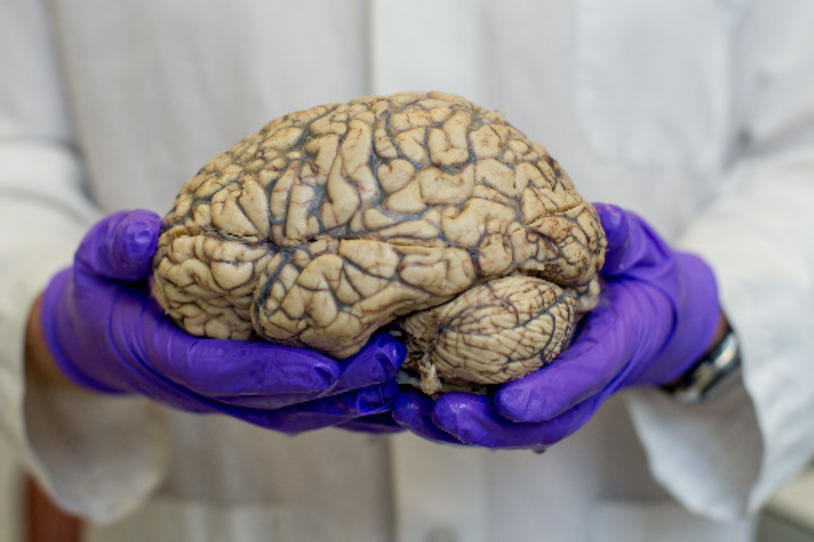
On Friday morning our CEO sent around an email. Subject: This is big!
He was sharing news from pharmaceutical company Biogen Idec (renamed today as simply Biogen) around an Alzheimer’s drug in development with strong implications for Parkinson’s research. The drug — aducanumab (BIIB037) — showed safety and positive impact not only on clinical symptoms but also on brain imaging scans.
Alzheimer’s, like Parkinson’s, is a disease of protein clumps. In Alzheimer’s the protein amyloid-beta aggregates into what scientists call plaques. In Parkinson’s disease (PD), alpha-synuclein protein clumps to form Lewy bodies. Researchers believe these plaques and Lewy bodies harm brain cells.
Biogen compared BIIB037 to placebo in 166 people in the early stages of Alzheimer’s disease. Analysis showed no change in plaques among those given the placebo, but there was significant change in those who received the drug. In fact, those given more of the drug showed greater decrease in plaques and less decline in cognitive and functional abilities.
Big news, indeed. The company is planning a Phase III study with hopes to begin later this year.
What does this mean for people with Parkinson’s disease?
While not everyone with Parkinson’s develops dementia, some do. People with PD dementia often have amyloid plaques like those seen in Alzheimer’s, so a drug such as BIIB037 may benefit that population, though further testing would be necessary.
These findings are a win for Parkinson’s research, too, because BIIB037 is an antibody (disease fighters that help the body fend off harmful substances). Scientists are currently testing two antibody approaches against alpha-synuclein in clinical trials to slow Parkinson’s progression. The positive results from this Alzheimer’s study are a boost that this therapeutic strategy shows real promise.
This excitement comes with a caveat, though. Biogen has a biomarker tool to measure the impact of its drug; Alzheimer’s researchers can measure amyloid load in the brain through imaging capabilities. We don’t have such a tool for Parkinson’s research yet.
Our senior vice president of research programs Mark Frasier, PhD, is at the International Conference on Alzheimer's and Parkinson's Diseases and Related Neurological Disorders in France, where Biogen shared its study results.
“I was at the presentation, and it was definitely impressive — both the changes on the biomarker scan but also the slowing of clinical progression. My takeaway from this entire meeting is how much we need better biomarkers of Parkinson’s disease,” he wrote in an email.
The Michael J. Fox Foundation is working urgently to validate Parkinson’s biomarkers. We’ve assembled a team to develop the technology to image the alpha-synuclein protein in the brain. And the MJFF-led Parkinson’s Progression Markers Initiative study is working toward measures of alpha-synuclein in blood or spinal fluid. Research toward these vital research tools is a top priority for the Foundation.
Learn more about PPMI and how biomarkers would speed testing of antibodies and other therapeutic approaches to slow Parkinson’s disease.
